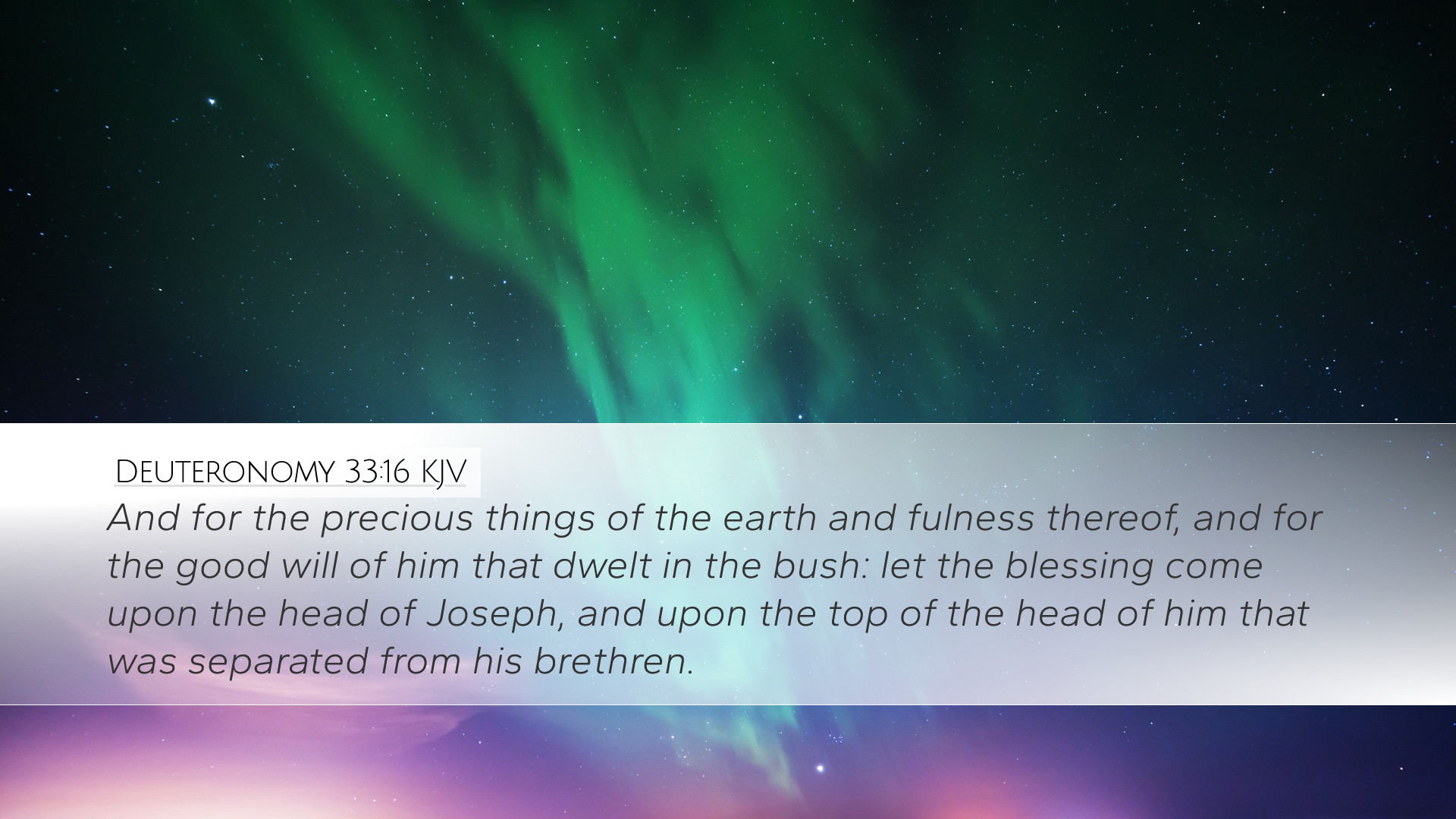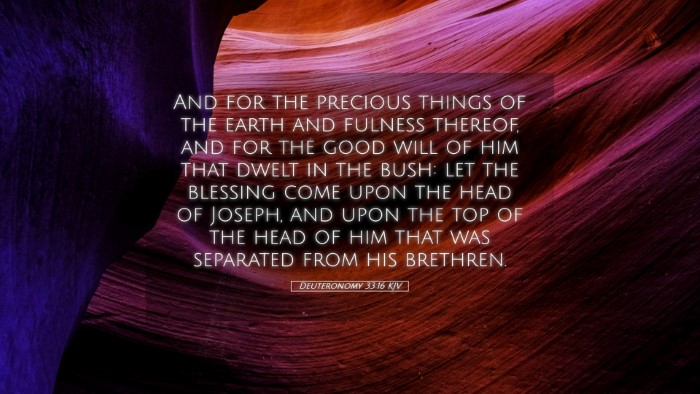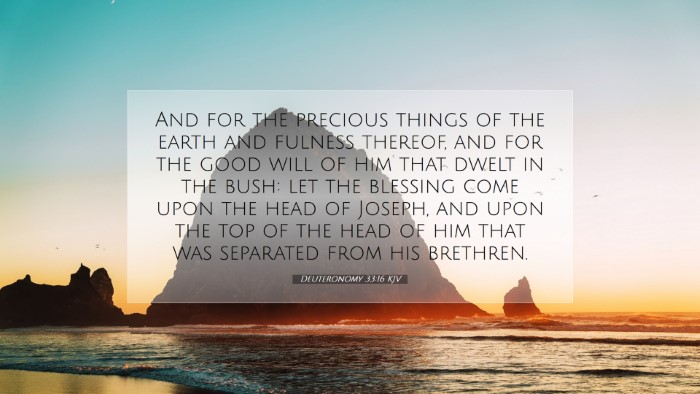Deuteronomy 33:16 Commentary
Verse Context: Deuteronomy 33:16 is part of Moses's blessings to the tribes of Israel before his death. This chapter encapsulates the final words of a leader who has shepherded the people through trials and towards the Promised Land. Here, we delve into a rich understanding of this particular verse.
Text of Deuteronomy 33:16
"And for the precious things of the earth and the fullness thereof, and for the good will of him that dwelt in the bush: let the blessing come upon the head of Joseph, and upon the top of the head of him that was separated from his brethren."
Interpretative Insights
This verse speaks to the profound blessings imparted to Joseph, reflecting not only his personal merit but also his unique role in the history of God's covenant people. The mention of "the precious things of the earth" can be considered both literal and metaphorical. Experts such as Matthew Henry note that it may symbolize the bountiful nature of the land promised to Israel.
The Significance of Joseph
Joseph holds a special place among the patriarchs. As noted by Albert Barnes, he represents a figure who, through adversity, became a deliverer to his family. His life encapsulates themes of providence, forgiveness, and God's grace. The reference to "him that was separated from his brethren" highlights Joseph’s unique journey—from being sold into slavery to becoming a leader in Egypt, thus foreshadowing Christ's rejection and subsequent exaltation.
The Blessings of the Earth
In the phrase "the precious things of the earth and the fullness thereof," we observe a textual richness that suggests both physical and spiritual abundance. Adam Clarke elaborates on this by suggesting that the blessings promised are connected to both natural resources and divine favor, indicating an overarching theme of God’s goodness in providing for His people. This aligns well with the broader themes found throughout Deuteronomy, where blessings are closely tied to obedience and faithfulness to God.
The Good Will of Him that Dwelt in the Bush
The "good will of him that dwelt in the bush" points to the divine presence of God as revealed to Moses at the burning bush. The imagery signifies God's enduring commitment to His people. Clarke emphasizes that the divine "good will" refers to God's favor which rests upon Joseph and, by extension, upon all Israel. Understanding Joseph’s life in this context allows for a richer appreciation of the profound heritage of the Israelite people.
Theological Implications
This verse raises significant theological implications regarding the nature of blessings in the life of believers. The dual focus on physical abundance and divine favor leads to reflections on how God’s blessings manifest in different areas of life—spiritually, materially, and relationally. In contemporary applications, leaders and theologians may draw upon the historical blessings imparted to Joseph as a model for discerning God’s continued work in the lives of His people.
- God’s Providence: Joseph's story is a testament to the doctrine of divine providence, revealing that God's plan is often fulfilled through unexpected and difficult circumstances.
- The Role of Intercession: Moses's blessings can signify the importance of prayer and intercession in the life of a believer, especially for leaders and communities.
- Identity in God’s Plan: The separateness of Joseph serves as a reminder of the believer's identity in Christ, being called out and set apart for God’s purposes.
Practical Applications
For pastors, students, and scholars, Deuteronomy 33:16 encourages a deep examination of God’s abundant provisions and His call for faithfulness. Practical applications of this passage include:
- Encouragement during trials: Leaders can encourage church members undergoing struggles by reminding them of God’s faithfulness exemplified in Joseph’s life.
- Celebration of blessings: Regularly acknowledging and celebrating the blessings in congregational life fosters a spirit of gratitude and awareness of God's providence.
- Discipleship and identity: Teaching about being set apart, as Joseph was, nurtures a sense of identity among believers and emphasizes their role in God’s redemptive history.
Conclusion
Deuteronomy 33:16 encapsulates deep theological truths and rich historical narratives that continue to resonate within the faith community. Through the lens of Joseph's experiences and blessings, readers are reminded of God’s unwavering love and the call to live in accordance with His will. This verse serves as a cornerstone for discussing faithfulness, identity, and the manifold blessings that God bestows upon His people.


